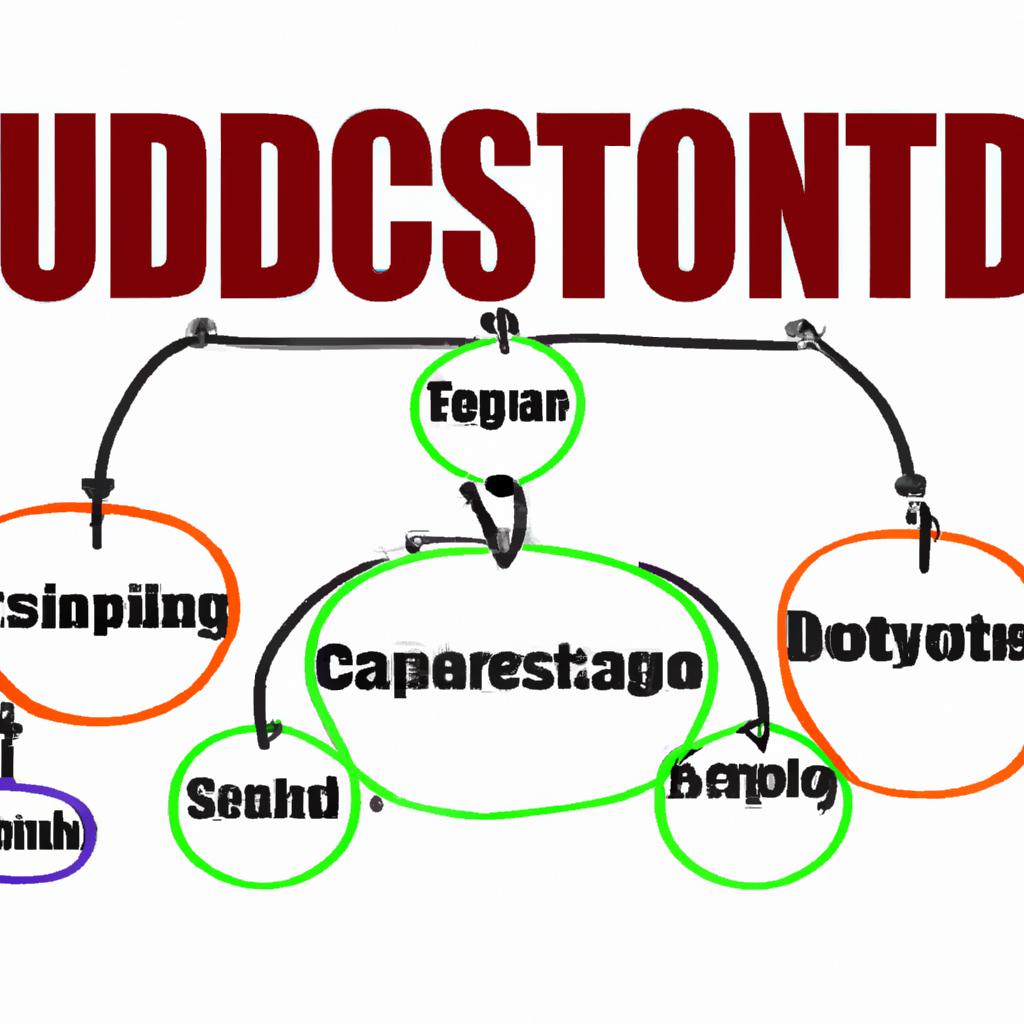In the intricate web of family law, few subjects evoke as much emotion and contention as custody and visitation arrangements. As seasoned legal practitioners at Morgan Legal Group, situated in the bustling metropolis of New York City, we understand the delicate balance required to navigate these sensitive issues. With expertise in estate planning, probate, elder law, Wills, and trusts, we provide tailored solutions to ensure the best interests of all parties involved are safeguarded. Join us as we delve into the complexities of custody and visitation, exploring the legal intricacies that shape these crucial facets of family dynamics.
Understanding Custody Types in New York State
In New York State, there are several different types of custody arrangements that can be put in place for children. It is important for parents to understand the different options available to them so they can make informed decisions about what is best for their child. Here are the main types of custody that may be awarded:
- Legal custody: This type of custody gives a parent the right to make important decisions about their child’s upbringing, such as education, medical care, and religious upbringing.
- Physical custody: This type of custody determines where the child will live and the amount of time they will spend with each parent.
- Joint custody: In this arrangement, both parents share legal and physical custody of the child, allowing them to make important decisions together and spend equal time with the child.
| Custody Type | Description |
|---|---|
| Legal Custody | Parent has the right to make important decisions for the child. |
| Physical Custody | Determines where the child will live and how much time they spend with each parent. |
| Joint Custody | Both parents share legal and physical custody of the child. |
Visitation rights are also an important aspect of custody arrangements. In cases where one parent is awarded primary physical custody, the other parent is usually granted visitation rights to ensure that they can maintain a relationship with their child. Visitation schedules can vary depending on the specific circumstances of the case, but it is important for both parents to prioritize the child’s best interests when creating a visitation plan. If you are facing custody issues in New York State, it is important to seek legal guidance to ensure that your rights and the best interests of your child are protected.

Factors Considered in Determining Custody and Visitation Arrangements
Factors to consider in determining custody and visitation arrangements can vary depending on the specific circumstances of each case. Some common factors that courts may take into account include:
- The child’s age and developmental needs
- The relationship between each parent and the child
- Each parent’s ability to provide for the child’s physical, emotional, and educational needs
- Any history of domestic violence or substance abuse
It is important to note that the best interests of the child are the primary concern when making custody and visitation decisions. Courts will typically strive to create arrangements that promote the child’s well-being and ensure that he or she maintains a strong relationship with both parents whenever possible. Our experienced team at Morgan Legal Group understand the complexities of custody and visitation cases and can provide you with the guidance and support you need during this challenging time.
| Child’s age | Parent-child relationship | Parent’s ability to provide for needs |
|---|---|---|
| 5 | Strong | Financially stable |
| 10 | Strained | Emotionally supportive |
| 15 | Close | Academically focused |

Creating a Parenting Plan That Prioritizes the Child’s Best Interests
In crafting a parenting plan that truly prioritizes the child’s best interests, it is crucial to consider various factors and aspects that will affect the child’s well-being. **Communication, flexibility, and cooperation between the parents** are key elements in creating a successful plan that fosters a healthy and nurturing environment for the child. It is important to focus on the child’s developmental needs, emotional stability, and overall welfare when determining custody arrangements and visitation schedules.
Ensuring regular and meaningful contact with both parents is essential for the child’s emotional and psychological development. Consistency and stability in the child’s routine should be maintained to provide a sense of security and predictability. Additionally, parents should strive to maintain a positive co-parenting relationship to promote a harmonious and supportive environment for the child. By working together to prioritize the child’s best interests, parents can create a parenting plan that benefits the child’s overall well-being and development.
| Key Factors: | Considerations: |
| Communication | Open and honest communication between parents |
| Flexibility | Being willing to adapt and adjust to changing circumstances |
| Cooperation | Working together to make decisions in the child’s best interests |

Navigating Custody Disputes and Legal Proceedings in NYC Jurisdictions
When it comes to , it is essential to understand the complexities and legalities involved in the process. Custody and visitation rights are crucial aspects that must be carefully considered and negotiated to ensure the best interests of the child are met. As experienced family law attorneys, we at Morgan Legal Group specialize in providing expert guidance and representation in these matters.
Whether you are seeking to establish a custody agreement, modify an existing arrangement, or resolve a dispute with your co-parent, our team is here to help. We work diligently to protect your rights and advocate for the well-being of your child. Through skilled negotiation and strategic legal representation, we strive to achieve a favorable outcome for our clients. Trust Morgan Legal Group to provide you with the support and guidance you need to navigate custody and visitation issues effectively.
Q&A
Q: What factors are considered when determining custody arrangements?
A: Custody arrangements are typically determined based on the best interests of the child, taking into account factors such as the child’s age, relationship with each parent, and any history of abuse or neglect.
Q: Can parents come to their own custody agreement without involving the court?
A: Yes, parents can create their own custody agreement through mediation or negotiation, but it is important to have the agreement legally documented to avoid any future conflicts.
Q: How is visitation usually decided in custody cases?
A: Visitation schedules are usually created based on the child’s age, the proximity of the parents’ homes, and each parent’s work schedule. The goal is to create a schedule that allows the child to maintain a strong relationship with both parents.
Q: What can parents do if one parent violates the custody agreement?
A: If a parent violates the custody agreement, the other parent can file a motion for contempt with the court. The violating parent may face consequences such as fines or changes to the custody arrangement.
Q: Are grandparents entitled to visitation rights in custody cases?
A: In some cases, grandparents may be granted visitation rights if it is deemed to be in the best interests of the child. However, this is determined on a case-by-case basis and may vary depending on state laws.
Key Takeaways
In conclusion, navigating the complexities of custody and visitation arrangements can be challenging for all parties involved. By approaching these matters with empathy, communication, and a willingness to prioritize the well-being of the children, families can work towards finding solutions that are in the best interest of everyone. Remember, seeking support from professionals such as mediators or therapists can also provide valuable guidance and assistance. Ultimately, the goal is to create a healthy and stable environment for children to thrive and grow, even in the midst of change. By working together and keeping the children’s needs at the forefront, families can successfully navigate the ups and downs of custody and visitation arrangements.
 –>
–>
Custody and visitation are two important aspects of child custody that parents going through a separation or divorce need to consider. These arrangements determine the time and responsibility each parent has in raising their child. In most cases, parents are able to come to an agreement on custody and visitation arrangements, but in some cases, the court may intervene to determine the best arrangement for the child.
Understanding the different types of custody and visitation, as well as the factors that are considered in determining these arrangements, is important for both parents to navigate this process successfully. In this article, we will discuss custody and visitation in detail and provide valuable information for parents going through this situation.
Understanding Custody and Visitation:
Custody refers to the legal responsibility of a parent to make decisions about their child’s welfare, including education, healthcare, and overall upbringing. There are two types of custody – physical and legal.
Physical custody refers to the actual living arrangements of the child. It determines with which parent the child will primarily reside and how much time the child will spend with the other parent. Legal custody, on the other hand, refers to the decision-making rights of the parents. A parent with legal custody has the authority to make important decisions on behalf of the child.
Visitation, also known as parenting time, refers to the time a non-custodial parent spends with their child. It allows the non-custodial parent to maintain a relationship with their child and participate in important events in the child’s life.
Types of Custody Arrangements:
1. Sole Custody:
Sole custody is when one parent has both physical and legal custody of the child, and the other parent has only visitation rights. This arrangement is usually granted when the other parent is deemed unfit or has a history of abuse or neglect.
2. Joint Custody:
Joint custody is when both parents have equal rights and responsibilities in making decisions about their child’s welfare. This can be either joint physical custody, where the child lives with both parents for equal amounts of time, or joint legal custody, where both parents have equal decision-making rights.
3. Split Custody:
Split custody is when siblings are separated, and one parent has physical custody of one child while the other parent has physical custody of the other child. This arrangement is not commonly granted, as courts often prefer to keep siblings together.
Factors Considered in Determining Custody and Visitation:
When parents are unable to come to an agreement on their own, the court will step in to determine custody and visitation arrangements based on the best interest of the child. Some factors that are considered in determining the best interest of the child include:
1. Primary Caretaker:
The primary caretaker is the parent who has taken on the majority of child-rearing responsibilities, including feeding, bathing, and taking care of the child’s daily needs. This factor is often considered when determining physical custody.
2. Child’s Preference:
In some cases, the court may take into consideration the child’s preference, especially if the child is of a mature age and is able to understand the implications of their choice.
3. Parental Capability:
The court will also consider the ability of each parent to meet the child’s physical, emotional, and intellectual needs. This includes factors such as employment, income, and living conditions.
4. Stability:
Stability is a crucial factor considered by the court when making custody and visitation decisions. This includes factors such as the child’s relationship with each parent, the child’s social and educational environment, and any history of abuse or neglect by either parent.
Benefits of Custody and Visitation Arrangements:
1. Promotes Stability and Consistency:
A well-structured custody and visitation schedule provide the child with stability and consistency. This allows the child to maintain a close relationship with both parents and continue their routine, which is essential for their emotional well-being.
2. Encourages Co-parenting:
Custody and visitation arrangements can encourage co-parenting between separated or divorced parents. By sharing decision-making responsibilities, parents can work together for the best interest of their child.
3. Reduces Conflict:
A clear and detailed custody and visitation arrangement can reduce the potential for conflict between parents. By having a set schedule in place, there is less room for disagreements and confusion.
Practical Tips for Custody and Visitation Arrangements:
1. Create a Detailed Parenting Plan:
Having a detailed parenting plan in place can help avoid confusion and disagreements between parents. This plan should include the custody and visitation schedule, means of communication, decision-making processes, and any other important arrangements.
2. Be Flexible:
While it is important to have a detailed parenting plan, it is also crucial to have flexibility in case of unexpected circumstances. Being open to modification in the schedule can make co-parenting easier and more effective.
3. Focus on Your Child’s Best Interest:
When making decisions about custody and visitation, it is important to keep the best interest of your child at the forefront. This will not only help in making the right decisions but also foster a positive co-parenting relationship.
In conclusion, custody and visitation arrangements play a significant role in the upbringing of a child. Understanding the different types of custody, the factors considered in determining these arrangements, and the benefits of having a structured plan in place is crucial for parents to navigate this process successfully. By keeping the best interest of the child in mind and working together, parents can create a harmonious co-parenting relationship that benefits their child’s emotional well-being.

